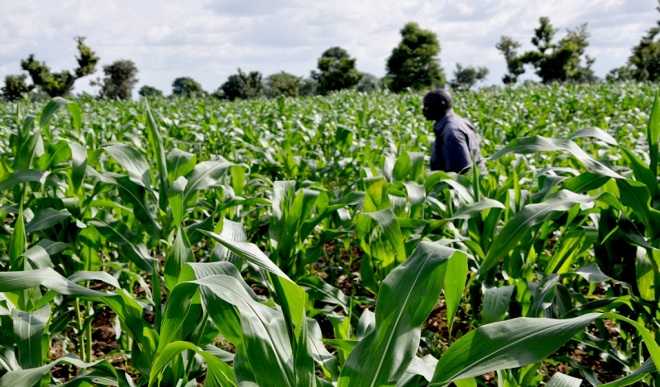Experts want broader inclusion in Agric budgeting
Economic and Agricultural experts have called for broader inclusion of stakeholders in the formulation and implementation of budgetary allocation for the Agricultural sector to engender economic growth and national development. Assistant Director Economic Growth Department Ministry of Budget and National Planning Mr Aso Patrick Vakporaye, the Lead Director Centre for Social Justice (CSJ) Barrister Eze […]


Economic and Agricultural experts have called for broader inclusion of stakeholders in the formulation and implementation of budgetary allocation for the Agricultural sector to engender economic growth and national development.
Assistant Director Economic Growth Department Ministry of Budget and National Planning Mr Aso Patrick Vakporaye, the Lead Director Centre for Social Justice (CSJ) Barrister Eze Onyekpere and the Food and Agriculture Program Advisor ActionAid Nigeria (AAN) Azubike Nwokoye gave the advice on Monday in Kaduna.
The spoke at the “Stakeholders Consultative Meeting on 2018 Agriculture Budget” organised by the Action Aid Nigeria (AAN) and the Ministry of Budget and National Planning (MBNP).
The meeting which was first held in 2016 was among others to facilitate conversations among key stakeholders connecting the continental framework, the Comprehensive Africa Agriculture Development Programme (CAADP) targets and government intentions within the Agriculture Promotion Policy (APP).
Vakporaye spoke on the Medium Term Sector Strategy (MTSS), Planning and Budgeting Processes in Nigeria: The Need for the increased participation of all levels of stakeholders in the Agriculture Sector.
He said a major improvement to the planning and budgetary process in the form of transparency by the ministry was the introduction of stakeholders to have a say on how the budget is put together, and making it more open to the public.
“Presently, there is no such formal mechanism in the country that invites citizens to participate in the budgeting process. In the agriculture sector, smallholder farmers, especially women and advocacy stakeholders (CSOs), have not been involved sufficiently in the consultations. The esoteric language and presentation style of the budget documents prevents the public from understanding the real content and importance of the documents.
“Even the legislators who are supposed to influence the budget do not possess the skills and information that would enable them to engage in a critical discourse of the matter. Also, the role of civil society organisations is limited due to the lack of databases and information,” Vakporaye said.
He therefore suggested promotion of participatory stakeholders’ analysis for the agriculture planning and budgetary process, usage of quantitative and qualitative research on government’s information, and holding pre-budget consultation for inputs from civil societies, media, academics and political activists among others as part of measures to address the challenge.
On his part Onyekpere speaking on the Agriculture Promotion Policy (APP) and the Agriculture Economic Recovery and Growth Plan (ERGP), said that while the APP is a sectoral policy, the ERGP is overall broad policy framework that covers the field and can only reflect the key principles of the APP in its agriculture provisions.
“Thus, it needs not be as detailed as the APP. However, the framework of the ERGP must be broad enough to accommodate the specifics of the APP,” he said.
According to him, Agriculture is central to the pillars of ERGP for 2020 and that restoring growth will involve the improvement of agricultural productivity and utilization, and conversion of agriculture commodities into finished valuable product.
“Fiscal governance policies are not aligning with the need for agricultural growth and improvement. Late budgets, poor capital releases, very low allocations to agriculture, poor reporting on budget implementation cannot be the foundation for the Green Alternative. An MTSS process that is not driven by popular participation and adherence to good and fit practices may also not engender the needed reforms and growth,” he said.
Also, Nwokoye speaking on the analysis of the proposed budget of the Federal Ministry of Agriculture and Rural Development commended the allocation more resources for capital expenditure and reducing recurrent expenditure in the sector.
He however urged the agriculture budget revised to support the growth of the smallholder farmers.
“The budget should be explicitly detailed to show how it promotes smallholder farmers’ productivity and growth. The budget should honour the Maputo Declaration by allocating 10 percent of the total 2018 national budget to agriculture in the light of economy recovery and growth.
